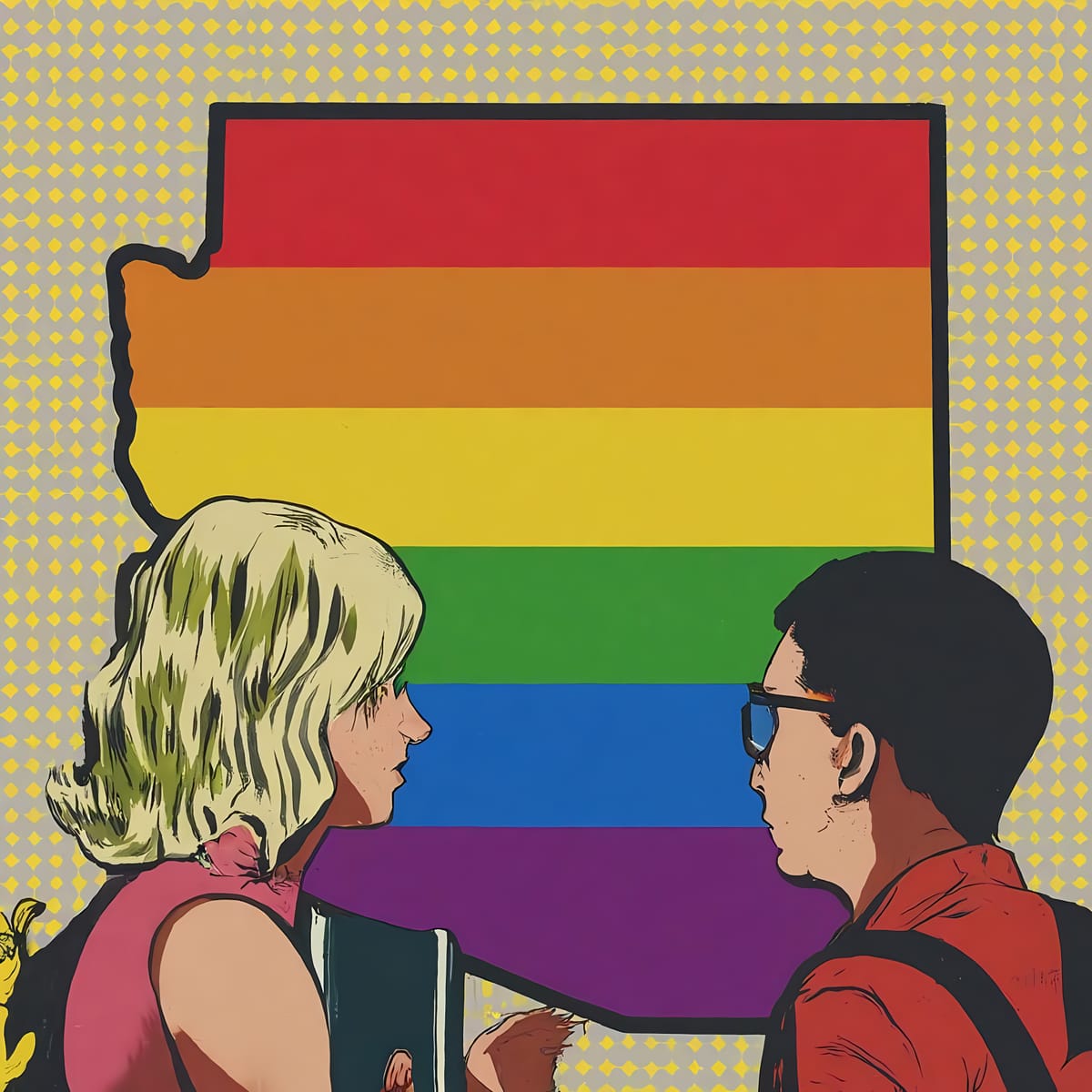Trans and Nonbinary Tucson Residents Favor Social Services Over Police Funding, Survey Finds
Out of 4,000 respondents, 190 identified as nonbinary or transgender. Overwhelmingly they believe in less police and keeping public transit free.

Tucson, Ariz. — Kapua Ioane is a former Amphitheater High School student in Tucson.
She received sex education in as much as three years of her entire time in middle and high school. However, the specifics of what she learned in each grade are a bit hazy.
In 5th grade, the curriculum barely touched on topics like healthy relationships, consent, and sex. It wasn't until high school that these subjects were more thoroughly addressed. And even then, it wasn’t a full class.
What stands out most in Ioane’s memory is the significant impact her family had on her understanding sex education, particularly through her mother discussing her own body: "My mom was talking about her menstrual cycles when I was in kindergarten," she recalled. She said that memory opened discussions at home on the changes in her body long before they were addressed in school.
It was a vast contrast to the fragmented approach she encountered at school.
Apart from family conversations, Ioane said discussions with friends and some off-handed conversations with teachers were mixed. Some of them were accurate, others were filled with misconceptions. For example, she remembered a friend confidently telling her that a dildo was actually a condom.
"For the longest time, when I thought of condoms, I thought of this dildo thing," Ioane explains. This led to considerable confusion for her, as she struggled to understand how this object could possibly function as a contraceptive device.
In hindsight, the confusion is amusing, but it points to a larger problem of what information we leave to children to find and piece together inaccurately, she said.
Currently working as a third-party counselor for low-income and first-generation high school students, Ioane observes a significant disconnect between educators and students regarding sex education.
As she reflected on her own experiences, Ioane wished sex education could be more consistent and inclusive. She advocated for a curriculum that integrates discussions about all aspects of sex and relationships, including queer sex education, and for creating safe spaces where all students can learn and ask questions without embarrassment.
Read more in our series on sex education:


LOOKOUT Publications (EIN: 92-3129757) is a federally recognized nonprofit news outlet.
All mailed inquiries can be sent to 221 E. Indianola Ave, Phoenix, AZ 85012.